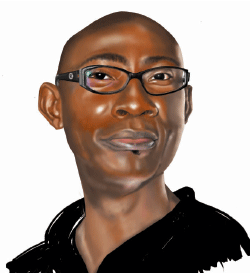Democracy is good. It offers the opportunity to make choices from a wide range of options without the fear of victimisation, unlike a dictatorship. That is why Abraham Lincoln defined democracy as the government of the people, by the people, and for the people.
Forget that foolish politicians delude themselves thinking they can do without the people, the true bastion of democracy. When the chips are down, and they lose election, they have themselves to blame.
The governorship election in Ekiti State on June 21 has reinforced my belief that there is no better system of government than democracy. The election simply shows that the people can be in charge in a democracy if they want to.
The campaign before the vote was one of the best in recent times. Governor Kayode Fayemi (All Progressives Congress, APC) and his two major contestants, Ayodele Fayose (Peoples Democratic Party, PDP) and Opeyemi Bamidele (Labour Party, LP), worked hard to etch themselves and their programmes in the consciousness of the Ekiti people.
I have never been to Ekiti. But during the first term of Fayose as Governor in 2003, before he was impeached in 2006, my colleagues who visited the state to evaluate his administration said he worked for his people.
Some of my friends from Ekiti, regardless of party affiliation, held and still hold a similar view. They have not stopped talking about Fayose’s first tenure.
Many of them believe there was no basis of comparison between Fayose’s tenure and that of Segun Oni who was used to supplant him by former President Olusegun Obasanjo.
Yet, there are those who think that Fayemi has done well in positioning Ekiti for the future, going by his investment in key infrastructure.
I monitored the Ekiti campaign in the media and noticed that there were too many needless classifications of Fayose as an illiterate, a thug, an area boy (street urchin), a criminal, et cetera. One senator from Ekiti frequently dismissed Fayose as not representing the new face of leadership the state desires because of his “little” education.
The senator fell short of swearing that Fayemi would win Fayose convincingly in the contest that Fayose would not have a choice than to retire finally from politics. He boasted that he defeated Fayose in their senatorial zone in the 2011 election.
His thinking of Opeyemi was that the legislator was not in the race at all.
I am glad that Fayemi has admitted that he deployed tools that did not really present the picture of opponents during the campaign and has acknowledged once more that Fayose is his “brother” and that the Ekiti people have chosen their next governor.
“If indeed this is the will of the Ekiti people, I stand in deference to your will. If the result of the election is an expression of the voice of our people, we must all heed your voice.
“I have just spoken with my brother, Mr. Peter Ayodele Fayose, congratulating him on his victory. In a few hours from now, I would be meeting the governor-elect to discuss the future of our dear state and how we would work together to institute smooth transition programme,” Fayemi said.
On his own, Fayose has some kind words for Fayemi even though he said he owes his victory to God and the common man in Ekiti.
Said Fayose: “It will be impossible for me to come back eight years after I left the government without their support. Fayemi has done his best. The only constant thing is change. The office of governor is an exalted office.
“For me, Fayemi remains my governor until October 16. He is a respectable Nigerian and a respectable leader. It is in Nigeria we rubbish our leaders.”
In the election, Fayose scored 203,090 votes, Fayemi (120,433) and Opeyemi (18,135).
It is heart warming that Fayemi congratulated Fayose almost immediately after the result was announced, something our politicians are not used to doing even if they lose fairly. With that, Fayemi has saved himself, his party and the Ekiti people the stress of election contest in court as well as the huge monetary resources that go with litigation.
We must also commend the resolve of Fayose to run an all-inclusive government. The significance of the commitment both Ekiti sons are making is important to take the state to the next level. Fayose should build on the modest achievements of Fayemi for the state to get better.
The way both of them have approached the post-election issues is something other politicians should learn from. By exchanging visits they have even told nay-sayers that election is not a do-or-die affair.
The massive vote Fayose received shows that Ekiti people have not forgiven Obasanjo for humiliating him out of office in 2006.
Ever before Fayose even went into politics and won the governorship ballot in 2003, he had been impacting lives in communities by sinking boreholes and rendering other forms of service which government could not provide.
He followed in the same footsteps when he became governor, but the dirty aspect of politics saw him being yanked off from office through impeachment engineered by Obasanjo from Aso Rock.
Ekiti voters have shown that they are unwavering in their covenant with Fayose and the people are the greatest and biggest winner in the June 21 poll and should congratulate themselves for putting the devil to shame.
Fayose can be described as the stone the builders rejected that has come back to be the chief corner stone. Ekiti Kete.
Maxi Okwu, what next?
Last week, the Court of Appeal, Abuja, ruled that Victor Umeh remains the National Chairman of the All Progressives Grand Alliance (APGA) and Sani Shinkafi, the National Secretary.
The ruling set aside the earlier one by Justice Abdul Kafarati of the Federal High Court, Abuja, which disregarded the jurisdiction of the Court of Appeal in Enugu that had given an emphatic judgment on the matter before Maxi Okwu et al approached it.
Justice Tani Hassan, who read the lead judgment said: “I also uphold the 12 grounds of appeal brought by the appellants. The trial judge, Justice Abdul Kafarati, should not have assumed jurisdiction to entertain the suit when there is a subsisting judgment of the Court of Appeal, Enugu Division, which voided the ruling of Justice Innocent Umezulike of the Enugu High Court.”
The Appeal Court Justices held that Okwu, who instituted the case before the Abuja High Court, had no locus standi because he had been expelled from APGA.
I have always asked what Okwu stands to gain from this court rigmarole over the status of Umeh and Shinkafi if not that he was working hand in glove with others for some people’s selfish interest. I had thought that the only way common sense would have prevailed was if those interested in succeeding Umeh wait till his tenure lapses later in the year.
What next, now that Okwu and his colleagues have ended up hurting their image?















